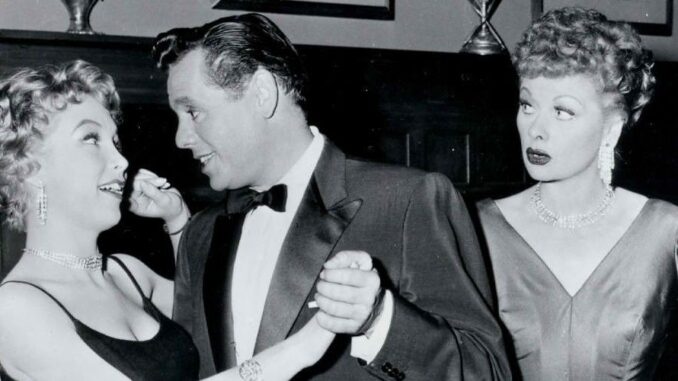
Introduction: A Classic Show with Questionable Norms
When I Love Lucy debuted in the 1950s, it broke ground with its humor, storytelling, and depiction of marriage. But fast-forward to today, and some aspects of Lucy and Ricky’s relationship raise eyebrows. While the show remains beloved, their dynamic showcases outdated norms that modern audiences might find problematic—or downright baffling. Let’s dive into 15 things about Lucy and Ricky’s relationship that simply wouldn’t fly in today’s world.
1. Ricky’s Controlling Behavior
It’s hard to miss how Ricky constantly controls Lucy, from her spending habits to her desire to work. In several episodes, he outright forbids her from pursuing her dreams, a move that would have today’s viewers shaking their heads.
2. The “Silly Wife” Trope
Lucy is often portrayed as the scatterbrained wife who can’t do anything right. This stereotype might have been funny then, but today, it feels reductive and dismissive of women’s intelligence.
3. Financial Control and Allowances
Ricky giving Lucy a weekly allowance? That setup screams outdated gender roles. Today, this kind of financial control would raise red flags about equality in the relationship.
4. The Lack of Emotional Support
Ricky often dismisses Lucy’s feelings, treating her concerns as overreactions or whims. In a healthy modern marriage, emotional support and mutual understanding are cornerstones.
5. Physical Discipline as Comedy
Remember those moments when Ricky jokingly threatens to “spank” Lucy for misbehaving? While it was played for laughs, this kind of humor would feel inappropriate in today’s context.

6. Gender Roles That Box Them In
Lucy’s role as a housewife and Ricky as the breadwinner reflect a rigid view of gender dynamics. These roles, though common in the 1950s, are far from reflective of today’s partnerships.
7. Ricky’s Temper Tantrums
Ricky’s fiery temper and tendency to yell at Lucy would no longer be considered endearing. Instead, viewers might interpret his behavior as emotionally abusive.
8. The Way Ricky Downplays Lucy’s Ambitions
Whenever Lucy expresses her dreams of being a star, Ricky laughs it off. Today, supporting a partner’s ambitions is seen as a fundamental part of a healthy relationship.
9. Sneaky Schemes Aren’t Cute Anymore
Lucy’s constant scheming to get her way or to work around Ricky’s restrictions might have been comedic gold in the 1950s, but today it could indicate a lack of trust and communication.
10. Public Humiliation
Ricky often embarrasses Lucy in public, whether by calling her out in front of friends or mocking her mistakes. This would now be seen as toxic behavior rather than comedy.
11. Cultural Insensitivity
Ricky’s Cuban heritage is sometimes used as a punchline, with Lucy and others mimicking his accent or exaggerating cultural stereotypes. In today’s world, such humor would face significant backlash.
12. The One-Sided Power Dynamic
Lucy rarely has a say in major decisions, with Ricky acting as the ultimate authority in their marriage. This imbalance would never fly in a modern, egalitarian relationship.
13. The Lack of Genuine Apologies
When Ricky hurts Lucy’s feelings or makes a mistake, he seldom offers a sincere apology. Today, accountability and communication are key to resolving conflicts in a healthy way.
14. The Expectation for Lucy to “Know Her Place”
Several episodes reinforce the idea that Lucy should stay in her lane as a dutiful wife. This outdated notion is starkly at odds with today’s emphasis on equality and empowerment.
15. The Over-the-Top Jealousy
Ricky’s jealousy often causes unnecessary drama, from spying on Lucy to misinterpreting her actions. Modern couples would see this as a lack of trust rather than romantic devotion.
Why These Moments Matter Today
Revisiting I Love Lucy through a modern lens highlights how much society has evolved in its understanding of relationships. While Lucy and Ricky’s antics were endearing in their time, they also reflect norms that perpetuated inequality and reinforced stereotypes.
Does this mean we should cancel the show? Absolutely not! Instead, it’s an opportunity to appreciate the progress made in redefining healthy, respectful partnerships.
Conclusion: Timeless Lessons Amid the Flaws
Despite its outdated elements, I Love Lucy continues to charm audiences with its humor, creativity, and chemistry between Lucille Ball and Desi Arnaz. By acknowledging the aspects of the show that no longer align with modern values, we can appreciate how far we’ve come—and how much we owe to pioneers like Lucy and Ricky.
FAQs
1. Why is Ricky portrayed as so controlling in the show?
Ricky’s controlling behavior reflects the societal norms of the 1950s, where men were expected to dominate household decisions.
2. Were these dynamics criticized at the time?
Not often. The dynamics mirrored traditional relationships of the era, which were rarely questioned in mainstream media.
3. Is it okay to still enjoy I Love Lucy despite these issues?
Absolutely! The show is a product of its time and can be appreciated while recognizing its cultural context.
4. How would Lucy and Ricky’s relationship look in a modern reboot?
A modern reboot would likely feature a more balanced partnership, with mutual respect and support at its core.
5. Did Lucille Ball and Desi Arnaz share similar dynamics in real life?
Their real-life marriage had its ups and downs, but it was far more complex and less scripted than their on-screen relationship.